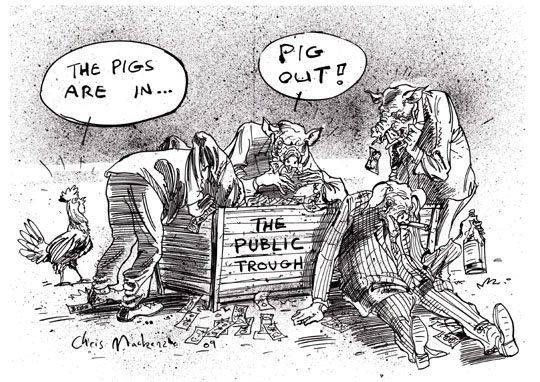A common joke among some foreigners here is that everything makes sense once you realize Japan is a communist country. However, the role of privileged ruling Communist Party (or, if you have a literary bent, the pigs in George Orwell's socialist parable "Animal Farm") is played not by the perpetual opposition party of that name, but by the country's bureaucrats. For this reason, Japanese government policies that may at first seem crazy often make sense if you ask the question, "What do the bureaucrats get out of it?"
Bureaucrat-bashing is popular in Japan and has generated numerous books, the most famous of which is probably "Oyakusho no Okite" (translated into English as "Straitjacket Society"), written in 1993 by the late Masao Miyamoto, a former bureaucrat himself. Aki Wakabayashi's recent book "Komuin no Ijona Sekai" ("The Bizarre World of the Public Servant") shows that despite 15 years of recession and so-called deregulation, things have not changed much. Japanese bureaucrats may live in a bizarre world, but it is one that they have created for their own benefit at great expense to taxpayers.
Wakabayashi writes from experience. Before turning to journalism, she spent 10 years working for a labor ministry research institute. Hired as an administrative worker, she was surprised to find herself receiving written orders to conduct research. Her boss tells her not to worry — it was just a formality since her salary came out of the research budget.



